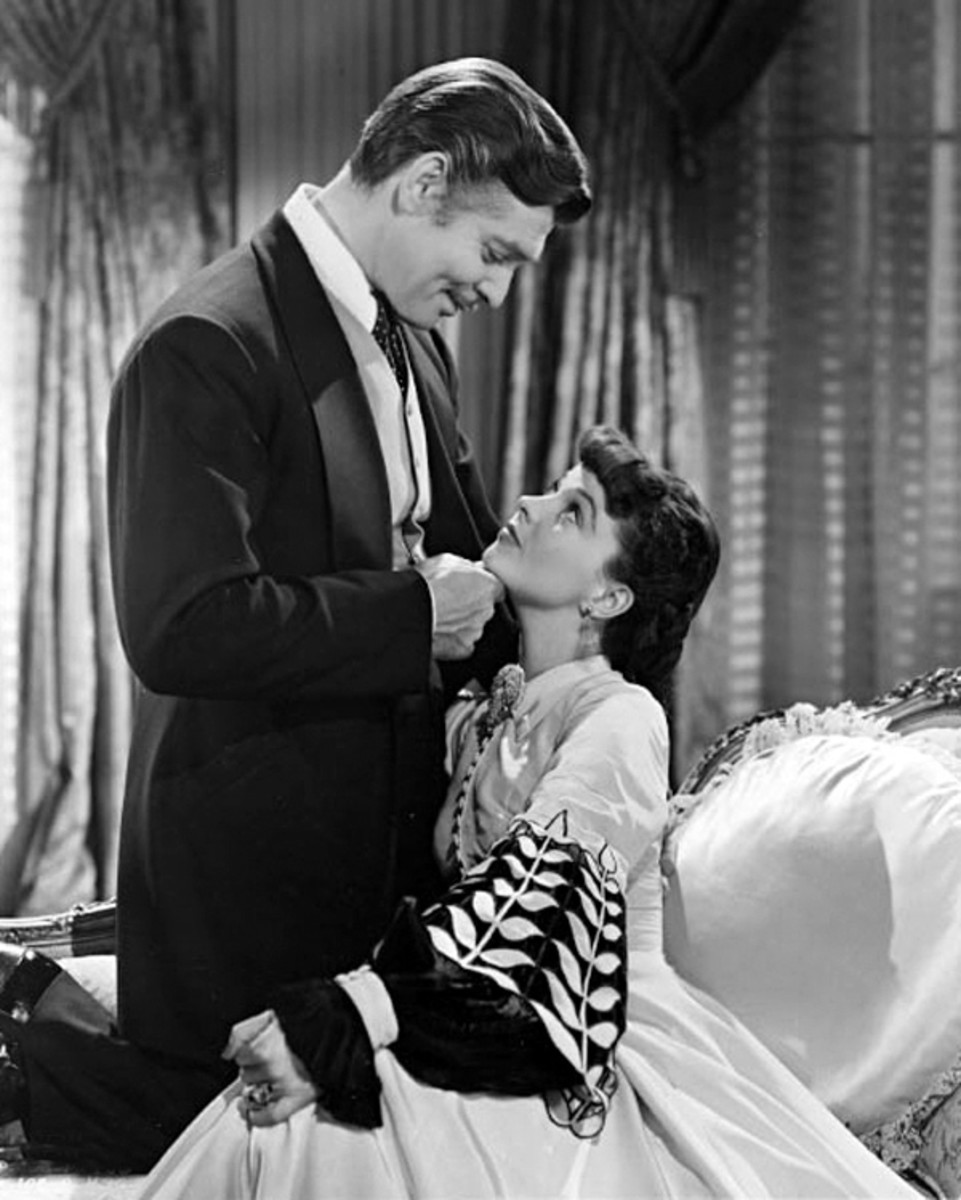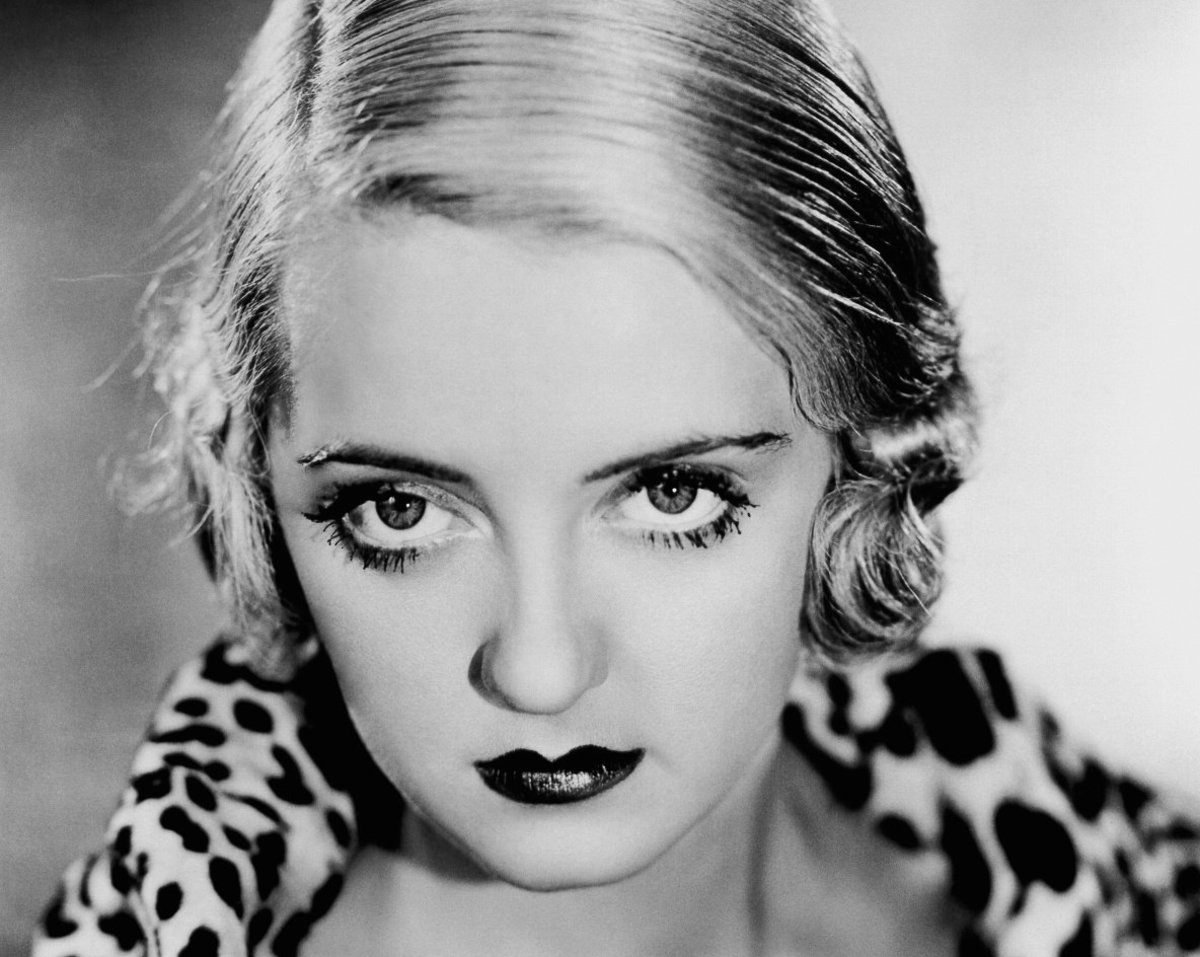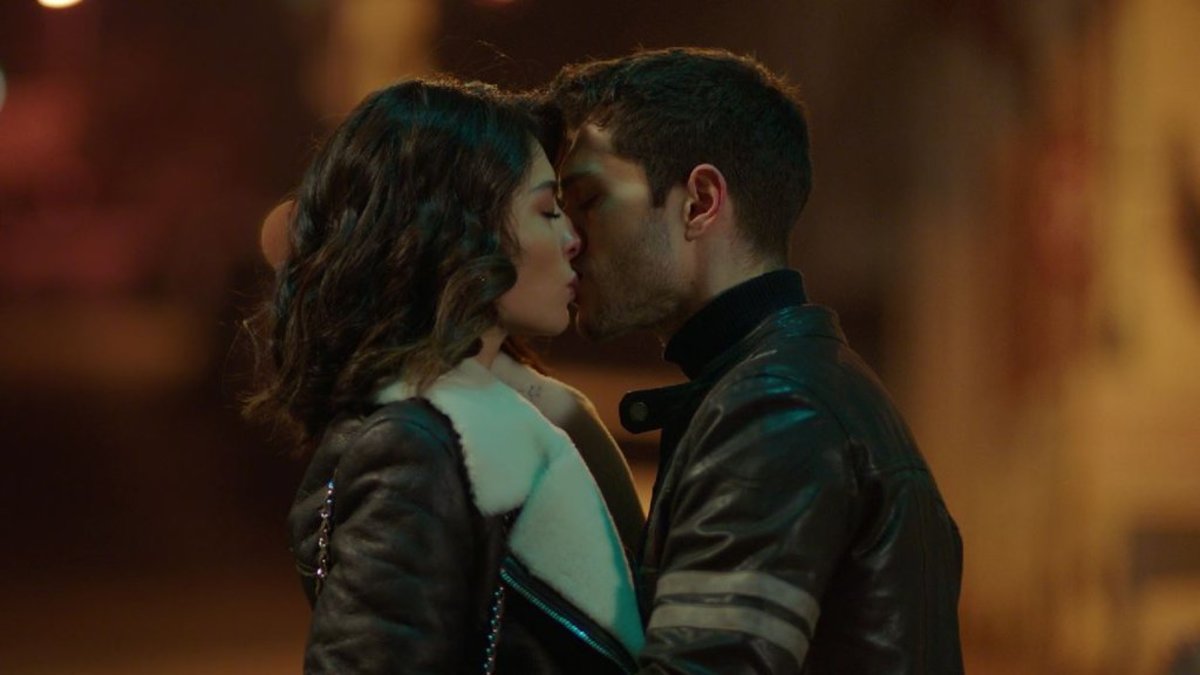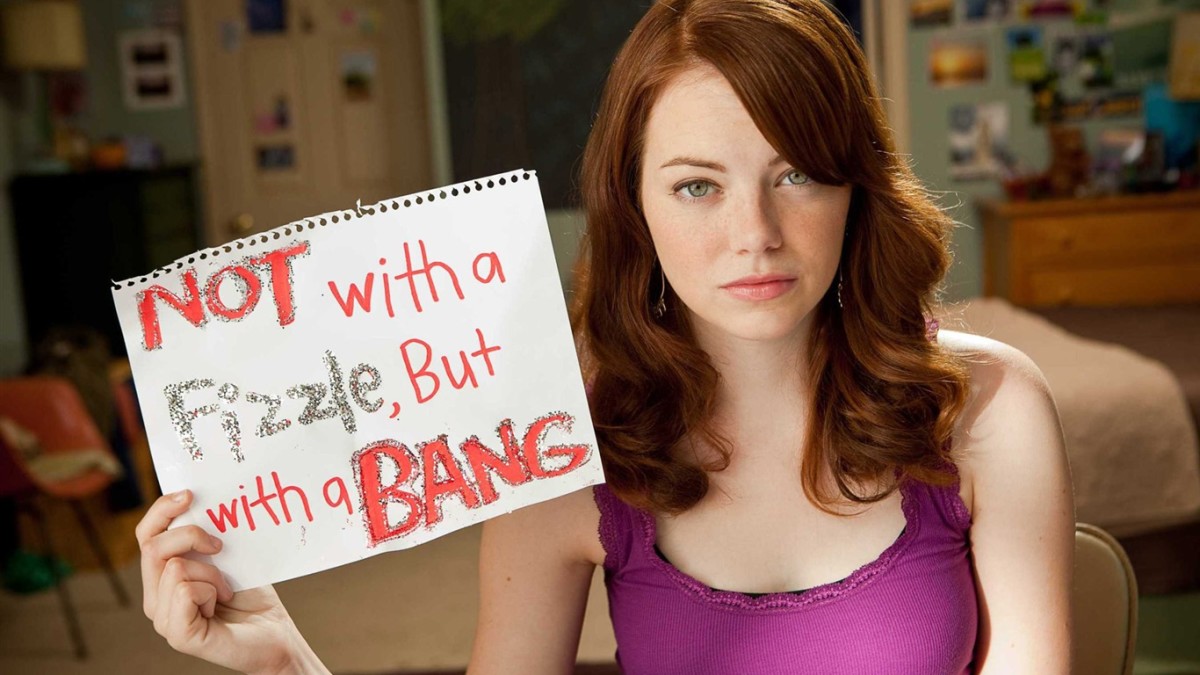Gone With the Wind review
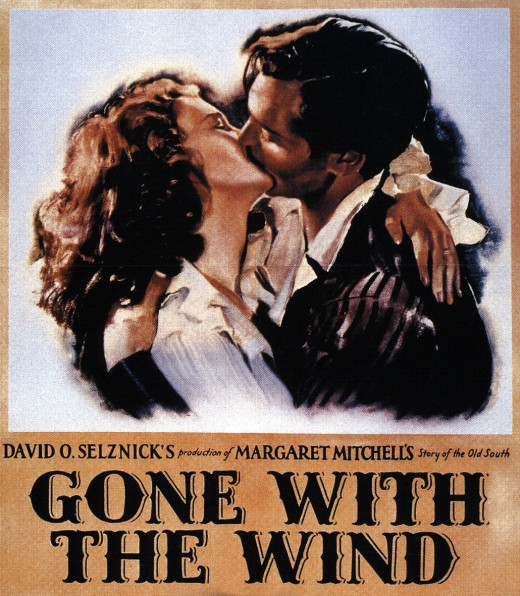
There is no introduction for Gone With the Wind that could do it justice. Never the less, I’ll try to. Released 74 years ago in 1939, David O. Selznick’s production of Margaret Mitchell’s bestselling novel has had a staying power in the pop culture lexicon few only hope to have. The original blockbuster long before films like Jaws and Star Wars were even thought about, Gone With the Wind continues to hold the record for most tickets sold for a motion picture, as well as the highest grossing film of all time adjusted for inflation. No doubt that the film was a spectacle, and to most people it remains one of the greatest films ever released. Is it really though? Yes and no. While Gone With the Wind features some amazing performances, an epic scope and some of the best lines ever written on film, it’s ultimately a little too inconsistent of a film to be put in the list of top ten films of all time. It’s excellent, even legendary, but not quite the level of a Citizen Kane.
Gone With the Wind is part love story, part tale of the decline of the Old South during and following the Civil War. The focus through it all is on Scarlett O’Hara (Vivien Leigh), a young, vibrant girl who starts the story living on the Tara plantation her family owns in Georgia. She’s in love with Ashley Wilkes (Leslie Howard) from the nearby Twelve Oaks plantation, something that normally wouldn’t be a problem except that Wilkes is marrying his cousin Melanie Hamilton (Olivia de Havilland). The love triangle is further crowded by Rhett Butler (Clark Gable), a charismatic gentleman who is instantly captivated by the free spirited Scarlett. As the war comes and goes and as the lives of these characters move on, the film becomes one of two questions; how long will it take for the stubborn Scarlett to realize that she’s really in love with Rhett instead of Ashley, and how long is Rhett willing to wait for Scarlett to figure that out.
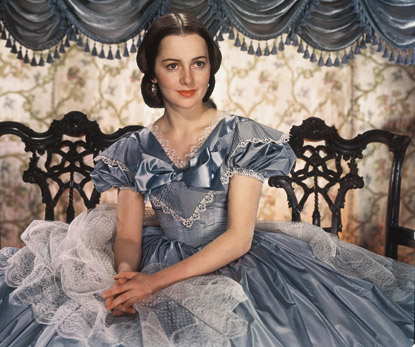
At nearly four hours, Gone With the Wind is a staggering film with two very different parts. Part one, which deals with the Civil War and everything surrounding it is one of the greatest things ever put on film. The narrative is at its most crisp, flowing at the perfect pace, while the dialog in the film snaps off the screen in a fashion that it feels like a screwball comedy. Things get even better in the final thirty minutes, when Melanie goes into labor and Scarlett, along with house servant Prissy (Butterfly McQueen) must either deliver the baby or find someone else to do so, an especially problematic situation as the Union army is preparing to lay siege to Atlanta (where Scarlett and Melanie have relocated to during the war). The best shot of the film, featuring Scarlett walking through a field of wounded soldiers in search of a doctor, occurs during this part, as well as the frantic escape scene where Rhett, Scarlett, Melanie, her baby and Prissy escape from a burning Atlanta that will leave you on the edge of your seat. By the end of part one, which ends with a defiant Scarlett declaring she won’t go hungry again as Max Steiner’s wonderful score blares, you’ll have thought you’re on your way to the greatest film ever made. It's that damn good.
Unfortunately, part two fails to sustain the momentum built up. That doesn’t mean it’s bad; most films would kill to have a whole film like Gone With the Wind’s second half. The problem is though that the film abandons its great pace from part one and moves into a slow, plodding pace that descends into filler and melodrama. I’ve watched the film several times, and each time I’ve found myself at one point or another in the second half asking how long till the famous closing line (“Frankly my dear, I don’t give a damn”) is going to be uttered. That’s never a good sign with any film, and ultimately it’s what separates Gone With the Wind from something like The Godfather, a film that didn’t waste a second of its long running time. I wonder if maybe Selznick would’ve been wise to cut some of part two out, such as Scarlett’s marriage to Frank Kennedy (Carroll Nye); the segment is perhaps the least memorable in the film (save for Scarlett nearly being killed by a gang) and likely wasn’t needed in the big picture.
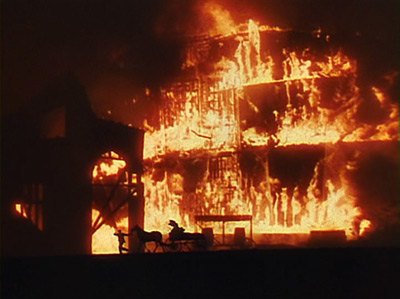
Not only was Gone With the Wind the first film to have a blockbuster impact at the box office, but it also featured a big time blockbuster cast as well, featuring stars of the era as well as future stars such as George Reeves and Ward Bond. As Scarlett’s father Gerald O’Hara, Thomas Mitchell gives a spirited performance, one that you wish would’ve been given some more screen time. Hattie McDaniel, who would win an Oscar for this film, steals scenes as Mammy, an African American house servant who manages to shake some of the racial stereotypes one would expect from the role. Olivia de Havilland, the only performer in this film still living today (she’s 97), is even better, creating one of the naïve yet sweetest characters ever in Melanie Hamilton. For whatever reason, de Havilland's performance in this film is overshadowed, perhaps because the character is simply too hard to dislike even the slightest. Oddly enough, the only actor who doesn’t give grade A work is Leslie Howard as Ashley. While serviceable, he comes across more of a stiff than a three dimensional character, sort of a precursor to Casablanca’s Victor Laszlo, and he never strikes the audience as someone Scarlett should be spending so much time hung up on.
As good as the rest of the cast is though; it doesn’t hold a candle to the two leads. Clark Gable and Vivien Leigh are nothing short of spectacular throughout this film, their chemistry as electric as any onscreen couple we’ve ever seen. Gable, already a star when this film was released, is the epitome of cool; he will make you laugh in the early scenes, cry in the later scenes, and simply leave you in awe almost every time he appears. It’s not hard to see why women wanted Gable and men wanted to be him following this film. Likewise, Leigh is able to hold her own with Gable in the scenes they share together, and hardly a scene goes by (whether Gable is with her or not) where she doesn’t show the fiery spirit Scarlett contains. Like Gable, she’s also very easy on the eyes. It’s impossible to imagine this film without Gable or Leigh in the lead roles; the only question is which one gives the better performance. I’ll give the nod to Leigh here; Gable may have the flashier role, but Leigh is tasked with carrying the majority of the film (no one appears on the screen more than her) while also transforming Scarlett from a spoiled, dependant girl into a fearless, driven woman. She nails every aspect of that, as well as keeping Scarlett three dimensional; this a character that has many flaws, but is also likable, as well has having some very strong feminist overtones.
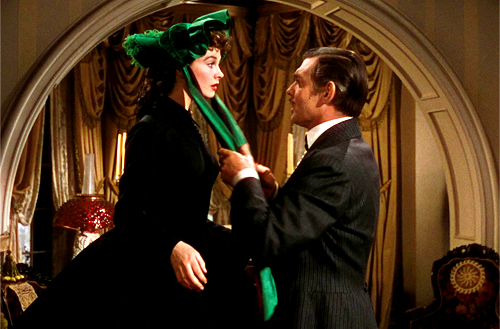
I’d be remiss if I didn’t bring up the fact that Gone With the Wind has generated a lot of controversy over the years over its portrayal of slavery. Those who feel that the film is somewhat tarnished by how slavery is viewed are most certainly validated; while not nearly as awful in its treatment of African Americans as D.W. Griffith’s Birth of a Nation was (Selznick and director Victor Flemming were smart enough to remove a scene depicting the KKK), Gone With the Wind is still very much stuck in an older mindset. Slavery is treated almost as a non issue, with slaves seemingly quite content with their position in the world and unwilling to accept the freedom that the end of the Civil War grants them. And that’s not even to mention performances such as Butterfly McQueen’s; her character Prissy (with her high pitched voice and limited knowledge) is the biggest joke in the film, and it’s highly uncomfortable to watch how Gone With the Wind treats her. Combine the slavery aspects with a scene that suggests Rhett rapes Scarlett (and more disturbingly suggests that she wanted him to do so), and you’ll at times be wishing that Gone With the Wind was a little less stuck in its time and a little more modern.
It ultimately doesn’t really matter how great Gone With the Wind really is I suppose; even after all these years since the film’s release, its popularity is still so high that it I’d have to imagine it will remain a staple of American culture for as long as film matters. The fact that the film is indeed a great experience is simply a bonus. Yes, the film is flawed both technically and politically and it’s standing of being one of the greatest films ever may be an overstatement. As a testament to spectacle, great dialog and fantastic performance art however, Gone With the Wind, along with James Cameron’s Titanic is perhaps the greatest example of what the Hollywood system can do when it nails its formula perfectly. Flaws and all, Gone With the Wind is a motion picture experience you must see at least once in your life.

